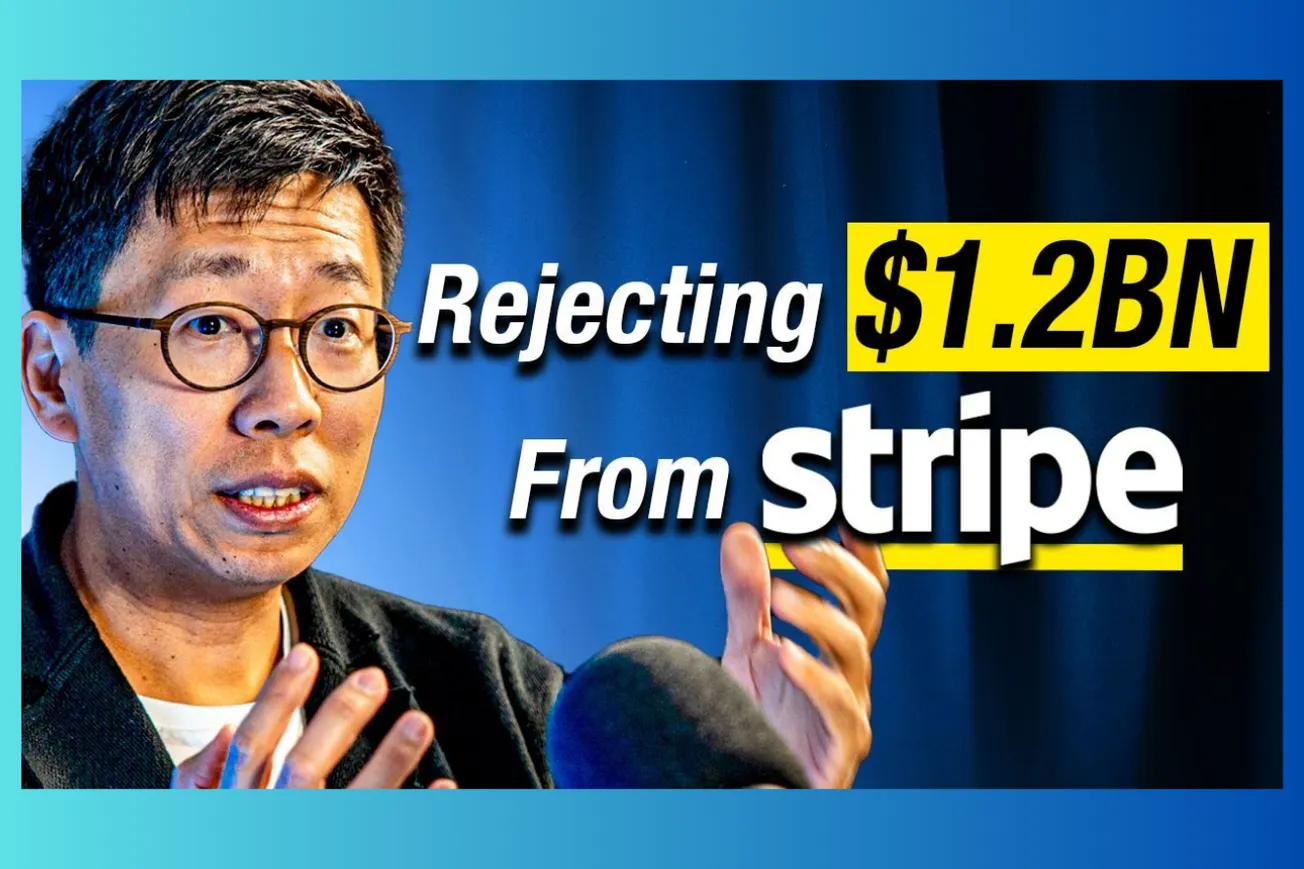Table of Contents
Jack Zhang’s journey from working 16-hour shifts in Melbourne’s petrol stations to co-founding a multi-billion dollar fintech giant is no rags-to-riches cliché—it’s a case study in resilience, reinvention, and relentless pursuit of engineering-led impact. His personal story and the creation of Airwallex are inseparable. Here's how it unfolded.
Key Takeaways
- Zhang’s earliest work experiences included 12-hour days in lemon factories and overnight petrol station shifts—at age 16.
- Before Airwallex, he ran multiple side businesses: real estate, architecture, importing olive oil, reselling phone cases, and more.
- The Airwallex founding idea came from cross-border payment inefficiencies exposed during a failed coffee shop experiment.
- Initial VC rejections and a pulled term sheet nearly killed the company—before a chance meeting with a first-time angel saved it.
- Zhang turned down Stripe’s $1.2B acquisition offer to pursue a bigger mission: to build the global financial infrastructure of the internet.
Humble Beginnings: Survival Mode in Australia
Jack Zhang’s entrepreneurial roots were forged not in tech accelerators, but in survival. At 16, stranded without financial support in Australia, he worked:
- In restaurants as a dishwasher.
- As a lemon box carrier—12 hours a day, 40°C heat, no lunch breaks.
- Bartending at the Westin Hotel till midnight.
- And immediately afterward, from 12 a.m. to 8 a.m., manning a petrol station.
He wasn’t optimizing for career development—he was trying to afford tuition as an international student.
"I worked 100 hours a week at age 16 because I didn’t have a choice."
From Side Hustles to First Fortunes
Even while working full-time, Zhang couldn’t stop building.
- He founded over ten small businesses—none of which he loved, but most of which were profitable.
- His ventures included importing wine, exporting textiles, real estate development, and selling mobile phone cases.
- By his late 20s, he had made over $10 million and owned companies with 40-50 unit apartment projects.
- His real estate partner? Future Airwallex co-founder Max Lee.
But something was missing. As Zhang put it: “Making money doesn’t make you happy. Building something meaningful does.”
The Accidental Insight: Coffee Shops, Payment Friction, and OFAC Blacklists
Zhang didn’t plan to start a fintech. He was opening a coffee shop.
- While importing beans from Brazil and packaging from China, co-founder Max Lee’s payment was blocked due to an OFAC blacklist match.
- Zhang dug into why global payments were so broken—and discovered the SWIFT system’s arcane structure.
- “It’s 140 characters to send a multi-million dollar transaction.”
That pain point became the Airwallex origin story: a faster, more reliable, developer-friendly way to move money globally.
A Million-Dollar Stranger: The Angel Who Bet on a Conversation
The earliest capital didn’t come from a VC. It came from Lucy, a former investment banker Zhang met at dinner.
- She was interested in the coffee shop.
- After one conversation, she offered $2 million for 40% of his next startup.
- They negotiated it down to $1 million for 20%.
- She wired the funds before the company even had a name or registration.
That $1M investment turned into a potential billion-dollar stake.
Rejection, Pivot, Repeat: The Pain of Early Traction
Even with funding in hand, success was far from linear:
- Matrix Partners pulled their signed term sheet after a call with their founder.
- Local Australian VCs rejected him repeatedly. Ironically, they later joined at a $6.2B valuation.
- Airwallex's first product idea—a P2P algorithmic remittance tool—flopped due to lack of volume.
- Its next iteration—SMB invoicing—failed to find product-market fit.
Zhang persisted. He pitched the vision—not the traction—to Tencent and Sequoia China.
The Near-Death Save: Square Peg and the FX Infrastructure Pivot
With little runway and no revenue, Zhang bet on a technical pivot:
- Cold-called Macquarie Bank at 8 a.m. on a hunch.
- Convinced a junior FX trader to back the company with internal engineering support.
- Built a real-time FX engine to plug into interbank liquidity—with $20 trade capability.
- Raised $6M from Square Peg, led by one of Zhang’s entrepreneurial heroes.
"This was the third product. First two failed. This one had to work."
Product-Market Fit (At Last): From Tuition Payments to Shein
The breakthrough came in 2018:
- Airwallex onboarded an edtech firm and Shein for tuition and supplier payouts.
- With just two major clients, the company processed $1B in transaction volume in nine months.
- They had only 100 customers—but the right ones.
- Soon after, Sequoia, Tencent, and Mastercard co-led an $80M round at $480M post-money.
This momentum proved the vision—Airwallex wasn’t a payments tool. It was the foundation layer for global money movement.
The Stripe Buyout That Almost Happened
In late 2018, Stripe expressed interest in acquiring Airwallex.
- Patrick Collison flew to Shanghai to meet Zhang.
- They shared a daylong vision session, mapped out financial infrastructure ambitions.
- Stripe proposed a $1.2B deal—$800M on cap table, $350M for founders, $50M in employee retention.
- Zhang nearly accepted.
But after returning to Melbourne, he put the question to his team—and 90% voted to keep building.
Building for Decades: Why Zhang Said No to $3B
Zhang’s decision wasn’t about money—it was about mission.
- “I grew up in Australia. I don’t live a luxury life. I didn’t need the money.”
- Inspired by Collison’s 30-year commitment to Stripe, Zhang decided to make Airwallex his life’s work.
- In his words: “I want to build the AWS of global finance.”
The Aftermath: Raising Hundreds, Scaling Billions
Airwallex’s growth accelerated:
- Raised $100M from DST Global at a $1.1B valuation.
- Expanded global licensing, FX infrastructure, and API capabilities.
- Quietly became one of Asia-Pacific’s only truly cross-border financial networks.
And yes, the early detractors—from Australian VCs to Matrix—eventually returned to invest.
Jack Zhang’s rise isn’t a fluke. It’s an ode to stamina. From washing dishes to rewriting how money moves, his playbook is simple: build the thing no one else dares, never stop coding, and choose meaning over exit.





